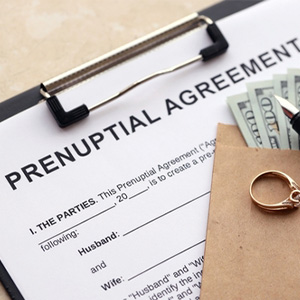
In this article, you will discover:
- Whether you should get a business valuation before filing for an uncontested divorce in Kentucky
- How Kentucky courts treat businesses that were started before the marriage
- Challenges of dividing a jointly owned business in an uncontested Kentucky divorce
Should You Get A Formal Business Valuation Before Filing For An Uncontested Divorce In Kentucky?
While Kentucky Law allows couples to divide assets through a separation agreement in an uncontested divorce, getting a formal business valuation before filing for divorce can be a strategic and beneficial step, especially if the business is a significant marital asset.
Can One Spouse Legally Buy Out The Other’s Share Of The Business In A Kentucky Divorce?
In a Kentucky divorce, one spouse can legally buy out the other’s share of the business, but it’s not automatic. It requires an agreement or a court order.
Kentucky Courts aim for a fair division of marital property, which includes businesses. This outcome can involve one spouse buying out the other, selling the business, and splitting the proceeds, or continuing as co-owners.
How Do Kentucky Family Courts Treat Businesses That Were Started Before The Marriage?
In Kentucky divorce proceedings, businesses started before the marriage are initially classified as separate property belonging to the spouse who founded or owned it. However, this doesn’t automatically mean the entire business remains separate property and is excluded from division.
Kentucky follows the principle of equitable distribution, meaning marital property is divided fairly, not necessarily equally. The court will consider several factors in the division of marital property:
- Appreciation and value during the marriage: Any increase in the business’s value between the marriage date and the separation date is considered marital property and subject to division in some courts.
- Marital contributions to the business: If marital funds were invested, or if the other spouse actively contributed to the business’s growth through labor, financial input or support, those contributions may be considered when determining the division of the business’s value or other marital assets.
- Commingling of assets: If separate business assets were mixed with marital assets or funds during the marriage, for example, depositing business profits into a joint account, that may be considered commingling and could alter the characterization of the business as purely separate property.
- Prenuptial or postnuptial agreements: If a valid prenuptial or postnuptial agreement addresses the business and its division in case of divorce, it will likely be enforced by the court. In essence, while the initial status of the business as separate property is recognized, its appreciation value during the marriage and the extent of the marital contributions will be closely examined by the court when determining how it will be treated in the divorce’s property division.
Seeking legal counsel from an experienced Kentucky divorce attorney is crucial to navigate the complexities of business valuation and asset division in those cases.
What Are The Most Common Mistakes Couples Make When Dividing A Jointly Owned Business In Divorce?
When dividing a jointly owned business in a divorce, common mistakes include:
- Failing to separate business and personal finances
- Underestimating or overestimating the business’s value
- Not having a prenuptial agreement
- Ignoring the impact of divorce on business operations
- Overlooking intangible assets, such as intellectual property or goodwill, and not considering the long-term tax implications
What’s The Most Challenging Aspect Of Dividing A Jointly Owned Business In An Uncontested Divorce?
The most challenging aspect of dividing a jointly owned business in an uncontested divorce is accurately valuing the business. Accurate valuation forms the foundation for fair distribution of assets. It could be a significant sticking point even when spouses are otherwise amicable.
Generally, even in an uncontested divorce where both parties want a fair resolution, the intricate nature of business valuation can make it the most challenging hurdle to overcome.
Here is why valuation presents such a challenge:
- Complexity of business valuation determination: A business’s true worth involves assessing various factors, including tangible assets, liabilities, income streams, market value, and intangible assets such as intellectual property and goodwill.
- Different valuation methods: There are various approaches to valuation. There can be an income-based, asset-based, or market-based approach. Any of these may be more appropriate, depending on the type of business, and spouses may disagree on which method is best.
- Potential for disputes: Even within an agreement on the method, spouses may have different perspectives on the business’s worth, which could lead to conflicts and delays in the process.
- Intangible assets: Valuing elements such as patents, trademarks, and the business’s reputation can be difficult to quantify.
- Need for expert assessment: Ensuring fairness and unbiased, accurate assessment of the business’s worth often requires the expertise of professional business valuators and forensic accountants.
- Importance of records: Accurate and detailed financial records are essential for a reliable valuation. Inconsistencies or a lack of trust, transparency, and record keeping can further complicate the process.
Still Have Questions? Ready To Get Started?
For more information on uncontested divorce with business ownership in Kentucky, an initial consultation is your next best step. Get the information and legal answers you are seeking by calling (270) 349-5349 today.
